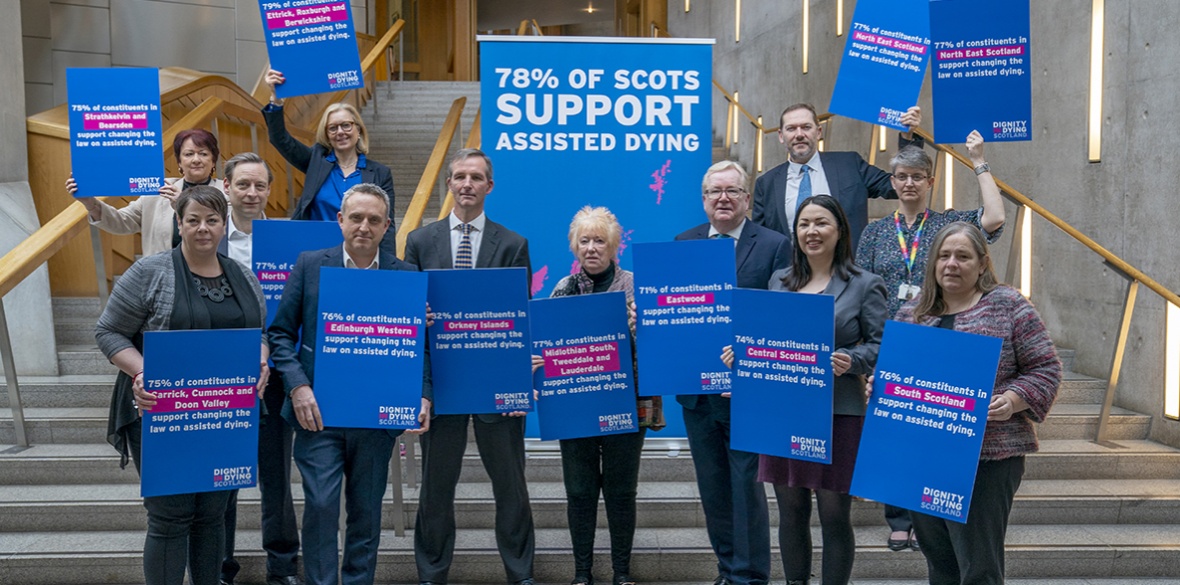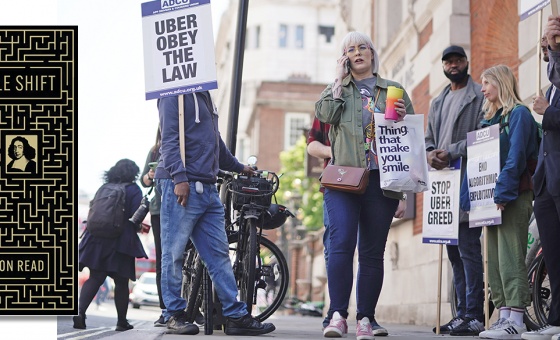This is the last article you can read this month
You can read more article this month
You can read more articles this month
Sorry your limit is up for this month
Reset on:
Please help support the Morning Star by subscribing here
KEIR STARMER, almost certainly in an attempt to distract from other policies, has highlighted his eagerness to reopen discussions around assisted dying, even making it legal in Britain.
The discussion in Parliament around any legislation relating to this topic will likely talk solely about those who are simply looking for a dignified end, partly because on that basis alone it can be seen as a progressive and humane answer to the situation, which I am in agreement with; however, nothing happens independently of each other in this life.
For disabled people, questions about dignity of life and death open up difficult conversations. Looking at nations with some of the harshest restrictions to abortion, they still have exemptions if the infant is to be severely disabled and lacks a “good quality of life.”
Though I’d never try to restrict any woman’s access to a vital form of healthcare, we have to acknowledge this complication. And thankfully on this front, the answer is simple — making education about what life as a disabled person can be, removing the worry, grief, and prejudice, and then allowing the individual to make the choice they believe is necessary for them.
However, the discussion around assisted dying is much more complex. There are many nations which have assisted dying within the law — the Netherlands, Switzerland, Canada, and quite recently Cuba to name a few — though Cuba’s circumstances on assisted dying are a pretty recent development, meaning there isn’t enough evidence to discuss it.
As noted by Ellen Clifford (morningstaronline.co.uk/article/why-starmer-dead-wrong-about-assisted-dying), the Netherlands, Switzerland, and Canada’s own implementation of assisted dying have been littered with controversies — notably Theo Boer’s admission that he was wrong to support it or the 2020 report which indicated that 34 per cent of participants “perceived themselves to be a burden on family.”
Similarly in Britain, following the announcement of assisted dying potentially being legalised in Britain Matthew Parris, writing in the Spectator, said: “The argument against it is that pressure will grow on the terminally ill to hasten their own deaths — that’s not a bad thing.” Though not a mainstream feeling in the argument, this particularly ghoulish sentiment is present, and we cannot ignore it.
The core issue for disabled people in particular around this discussion is, are we deemed worthy of life?
If disabled people are seen to have a life worth living, we would know access to assisted dying will be almost entirely for those who desire it.
However, as is powerfully demonstrated in the Birds of Paradise show Don’t. Make. Tea, disabled people in this country are barely even trusted to be disabled enough to need support from the state.
Lots has been written about the effect of the changes to disability benefits in this country, and the thousands who have died as a result of Tory and Liberal Democrat negligence, and I won’t dwell long on it, but it showed two key issues: life is not valuable when there are savings to be made, and focusing on the imaginary “scrounger” who is stealing the benefits, a government can commit atrocities while having the gall to say it cares about the disabled.
During the pandemic, disabled people were failed on numerous accounts — be it the failure to simply have a signer during press conferences, the lack of provision for disabled people who had to start shielding from February 2020 (many of whom never left their homes again), the Do Not Resuscitate scandal which showed many disabled were put onto DNR lists without their consent, or how those who developed Long Covid have had to fight, and are still fighting, to get the support they need.
All of these failures show disabled people were not valued enough by the state and that protections fall fast in a crisis or when life isn’t valued enough.
Now, I bring all of these elements up not to imply that anyone who supports assisted dying is evil or wishes to kill all disabled people or even encourage the chronically ill to end their lives like Parris, however all these factors bring into question what foundations we would be laying assisted dying legislation on.
As has been discussed by many, the NHS is under increasing pressure due to the many attacks from the Tories, Labour, SNP, and so on who simply despise the fact that poor people can have access to healthcare.
This, combined with the fact we are an ageing nation, and thanks to advances in healthcare, disabled people are also living longer, adds complications and costs to an already strained NHS.
Now, we are all aware the humane answer is to simply fund the NHS adequately but seeing as Labour seems eager to sell off the NHS, economic influences are to be considered around assisted dying.
Namely: convincing people to die is cheaper than keeping them alive. Similarly, as more and more people live a long life, state pension costs are increasing, which means if we can convince people to die, it’ll save a few bob.
This is hyperbolic, but sadly only slightly, and particularly given the failings during the pandemic or via the cuts to disability support we can see how easily things can roll downhill.
As has been seen in Canada, all protections to supposedly limit who has access to assisted dying have been burnt away and people have been granted access to it simply due to not knowing how to pay their bills.
As I mentioned earlier, dignity in death should be granted as far as possible and given the nature of this discussion, being too fixated on either side of this debate means we fail to allow the nuance of the discussion to come out. The reality is Britain is not ready for assisted dying, and we won’t be until we are in a position where we truly value life.
In short: give me dignity in life before you try to give me dignity in death.












